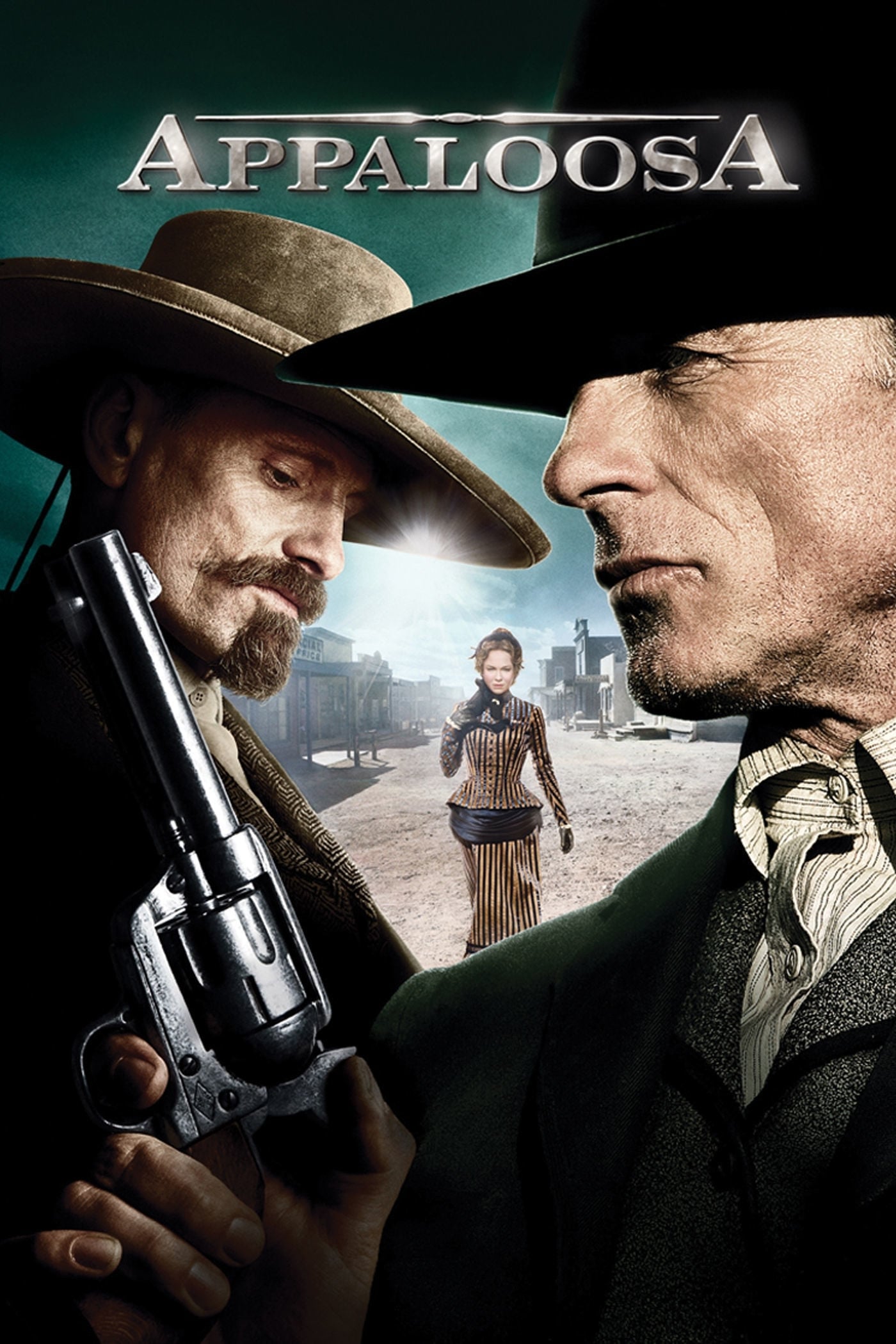24 Nov Appalossa (2008)
Shifty
Sometimes you can see the notes of the writer in a film.
It is as if he or she sat down with the intent of accomplishing certain things and wrote a story. But instead of the story, we still see the unerased list of goals. When the writer isn’t a real writer, but an actor, things are more likely to be transparent.
Here’s what Ed Harris wanted: some reference to good old western values, so he could inherit a whole world without having to write it. Then to induce some tension among four characters in the characters, not in the story.
The four characters are Harris, his sidekick, his wandering girlfriend and the town’s bad guy.
The western values? A haunted man. A code, a serious code of honour and allegiance, forged in the “Ford defines what it means to be American” tradition. Admiration behind the allegiance, driven by the power of the code centred in personality. Harris of course wrote this so he could be the centre of that cosmos of personality.
It is the devices that stand out unpolished. What Harris intended was that we ourselves would find each of these characters attractive in some way and repellent in others, thus giving us enough interest to seduce an audience. To accomplish this, he’s moving the observer, and what the observer thinks.
Our designated observer is the sidekick. We discover this in the first few seconds with a voice over narration, which reappears at the end as we close the book. It is through his eyes that we discover everything. He is not only in every scene that matters (except the one in the very beginning) but the camera and often the action emphasise that he is the watcher, a watcher that sometimes intercedes with his shotgun.
He is the writer. Harris is the ‘viewed’. There’s a particularly clumsy device used to emphasise this: Harris’ character often wishes to use a “big” word and stumbles, having to ask the writer.
The three in Harris’ orbit:
The town’s bad guy, who pretty much is unaltered from the template, except that we know he is the most educated guy on screen. The movie builds until we as the viewer cheer the writer on to intercede, vigilante-wise.
The side-kick, writer and observer who escapes the pull of Harris’ character at the end by embodying the code of honour more than he could. Its that honor that drives him. Watch how he watches and how key scenes are set up for him to watch.
The one deviation from the template is the girl, here played by an annoying Zellweger. Other than “Chicago” I just cannot understand why she is considered valuable. Anyway, the character is a sort of surrogate watcher, a mooneyed admirer. This is what I call folding, this structure where the watcher that is close to us (the sidekick) watches another watcher who is deeper in the story. (He himself has a watcher as well, a very effective whore.)
Now, the whole dynamic of the story concerns who she attaches herself to. She goes unerringly with the man who has the strongest narrative pull, which is to say the person who pulls the world and how the world works into themselves. With a but more work, or a real writer on the team, this could have been effective.
The score works.
Posted in 2008
Ted’s Evaluation — 2 of 3: Has some interesting elements.



No Comments